Net zero
Towns around the country are taking the initiative in helping Scotland become a net-zero society by 2045. Often, community-led organisations are at the forefront of local initiatives that focus on not just energy and emissions reductions but also local food growing, recycling, sustainable transport and efficient use of resources – all of which have benefits extending into health, wellbeing and community life.
The good news is that there’s lots of support out there. The examples below demonstrate what can be achieved, with links to more resources at the bottom of the page.
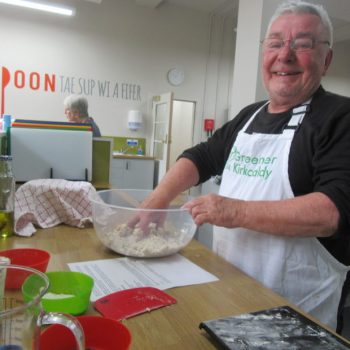
Community enterprise: Greener Kirkcaldy
Greener Kirkcaldy is a charity and development trust that wants a future where everyone is able to heat their home affordably, eat well, and tread more lightly on our planet. They work towards that by delivering projects to meet the needs and aspirations of local people: tackling fuel and food poverty, protecting and enjoying the environment, and bringing the community together. They take a community development approach, supporting their members, volunteers, and the wider community to make Kirkcaldy a greener and fairer place to live.
Their activities include kids clubs, the Lang Spoon Community Kitchen, Ravenscraig training garden and much more besides. The aim is to help everyone make a difference and do their bit individually for the environment and their community.
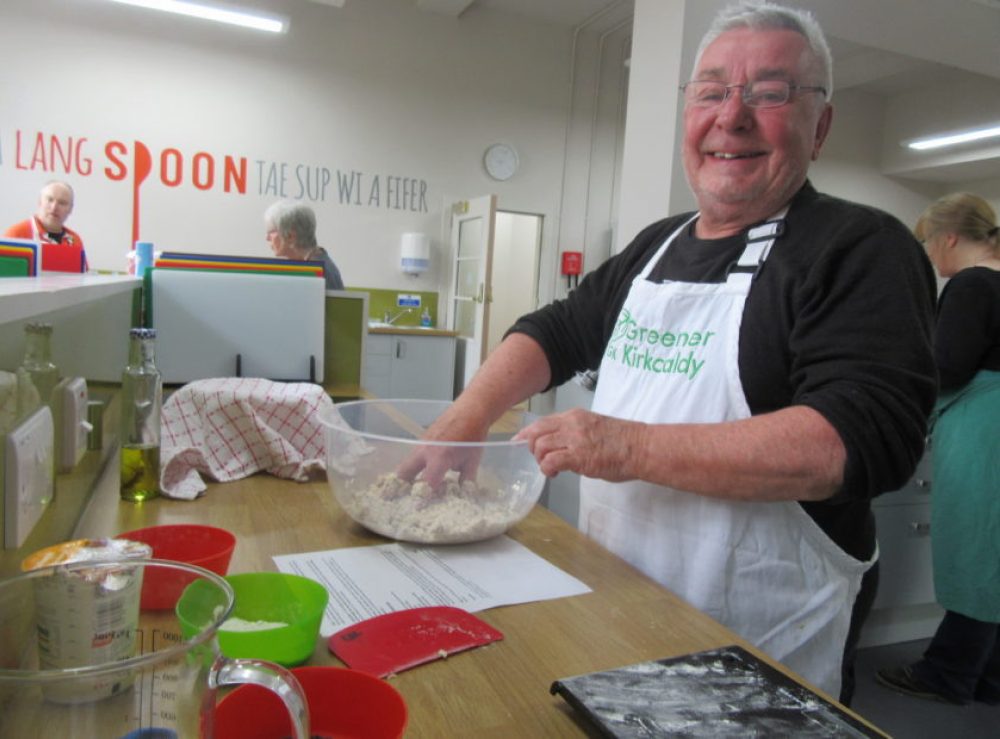
Anyone in the Kirkcaldy area can become a member. The organisation has been working in the town since 2009 and employs 20 staff, has over 50 volunteers and around 500 members. Funding is brought together from a whole range of funders for different projects.
To find out more about all the excellent work that Greener Kirkcaldy does, check out their website and social media feeds: Facebook, Twitter and Instagram. You can contact them directly by phone 01592 858458 or email info@greenerkirkcaldy.org.uk.
Re-use and recycle: Transition Stirling
From its town centre shop unit, Transition Stirling has run a variety of projects since it was formed as a community organisation in 2009. All are aimed at improving awareness of, and providing a positive local response to, climate change in and around Stirling.
Their current main project – Share and Repair – was made possible by a grant from the Scottish Government's Climate Challenge Fund to help the local community reduce the amount of waste sent to landfill. The project includes a tool library, repair café, wood reuse scheme, workshops and conversation events.
Zero waste: Dunbar
Dunbar was Scotland’s first Zero Waste Town: the community-led Zero Waste Dunbar project ran from 2014 to 2017. Great results were achieved in getting schools recycling. Virtually no waste was being recycled in the 6 local schools, who just needed an expert guiding hand to get systems set up. A 50% reduction to landfill was achieved within a year, and led to a great relationship with the Zero Waste Town team who went on to deliver some really ground-breaking waste education work involving role-play, animation and puppetry.
The real breakthrough for Dunbar was through re-use though. An initially small scale re-use project consisting of a van and staff diverting re-usable items away from landfill at the local recycling centre eventually blossomed into a hugely successful and wildly popular re-use operation which has spread right across East Lothian. It has generated income that has allowed the project team to set up social enterprise ReUse Scotland to carry on beyond the funded project, opening two huge re-use hubs in Dunbar and North Berwick and employing a number of staff and volunteers.
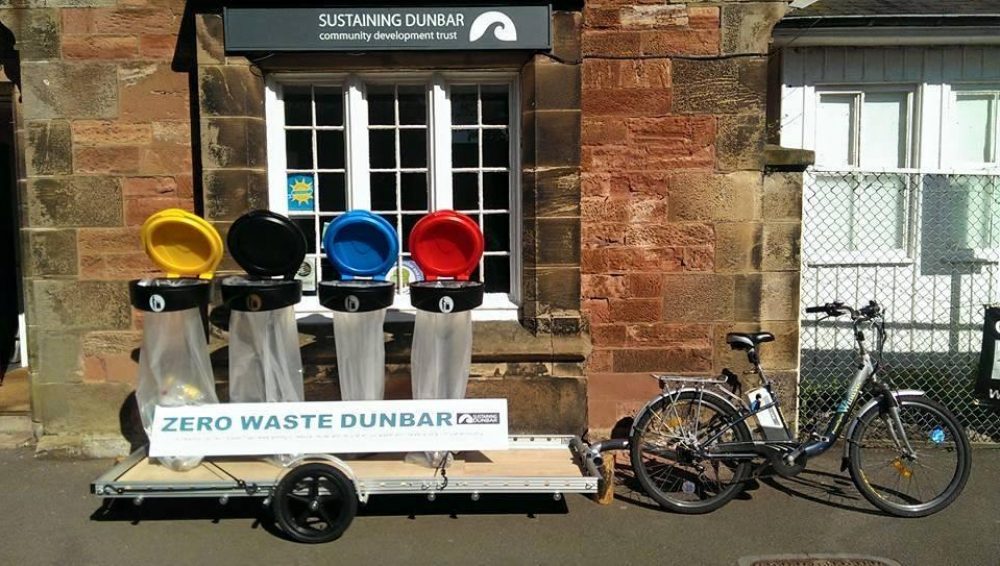
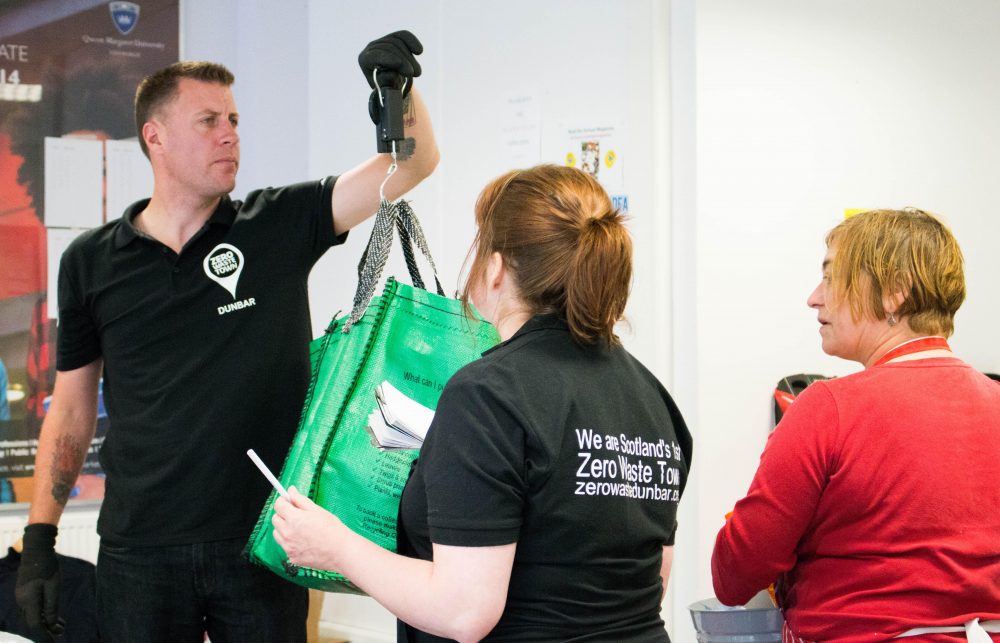
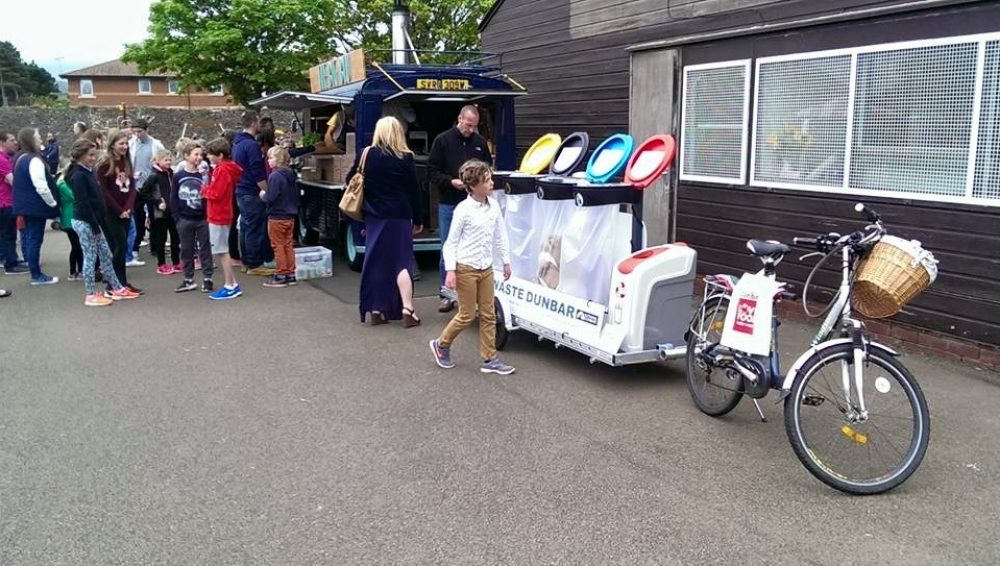
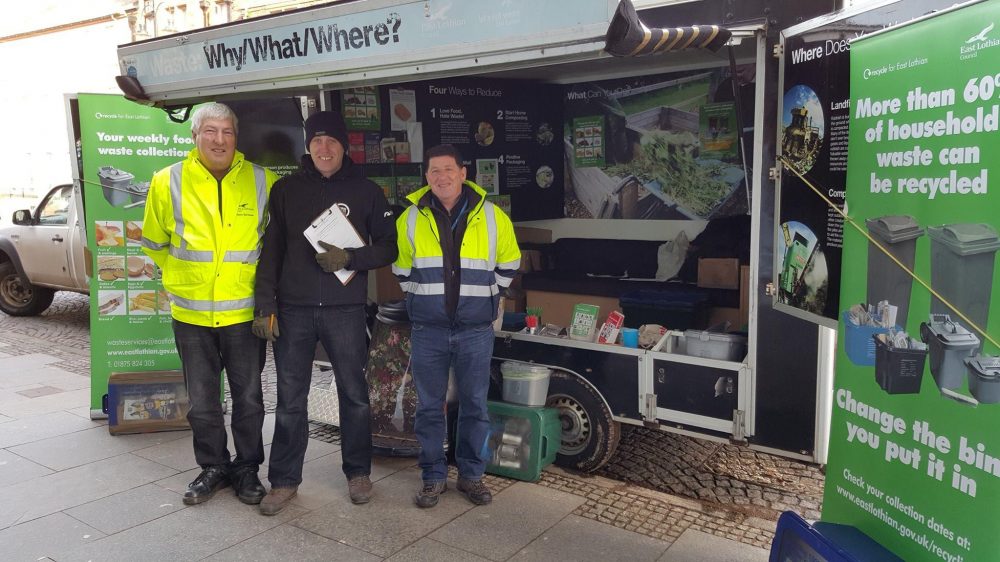
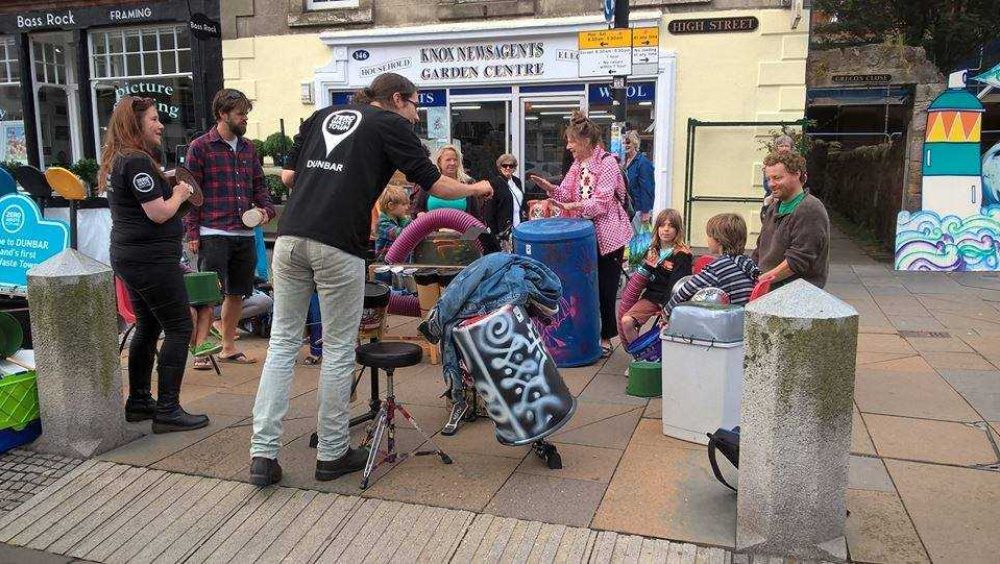
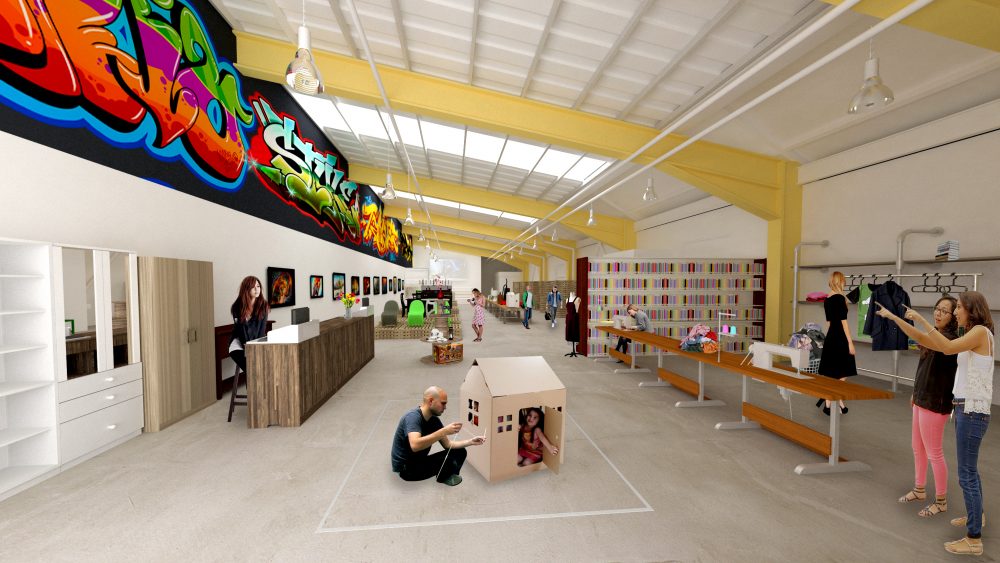
Miixer diverts over 30 tonnes of material from landfill every month to reuse for community benefit. From their concept store in the centre of Dunbar they sell quality items cheaply to local communities, donate to local groups and charities, and support those in need with free goods. Their "Big Pick" clothing initiative aims to eradicate clothing poverty in East Lothian.
With no external income at present, all Miixer’s costs are covered by trading income. If any profits are left at the end of the year, they are used to create new jobs in reuse. For more information, visit their Facebook page.
More information on other Zero Waste Towns, including Perth and Rothesay, can be found on the Zero Waste Scotland website.
Low-carbon heat and hot water: Wick
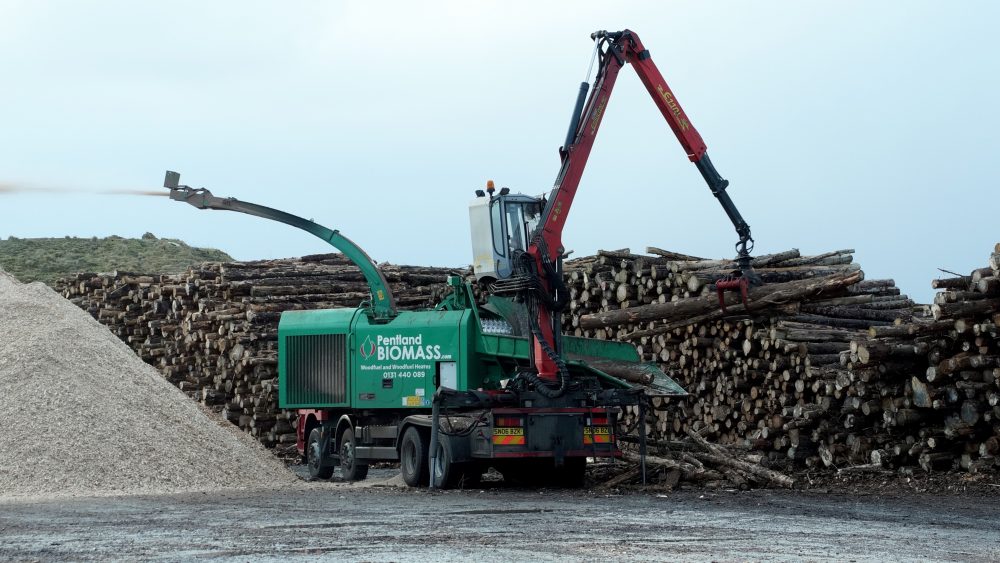
In Wick, woodchip-fuelled steam boilers power a district heating network that provides heat and hot water for 200 homes, the hospital, local authority premises and the local distillery. It’s substantially cheaper for customers than other forms of heating, saving around £200 per year per household. Furthermore, significant carbon savings are derived from displacement of alternative fuels and the reduced carbon emissions from wood.
Three people are employed by the project, which was made possible by District Heating Loans totalling over £0.5m from the Energy Saving Trust.
For more information on the Wick project, click here. District Heating Scotland has more information on district heating in general; see under More Information below.
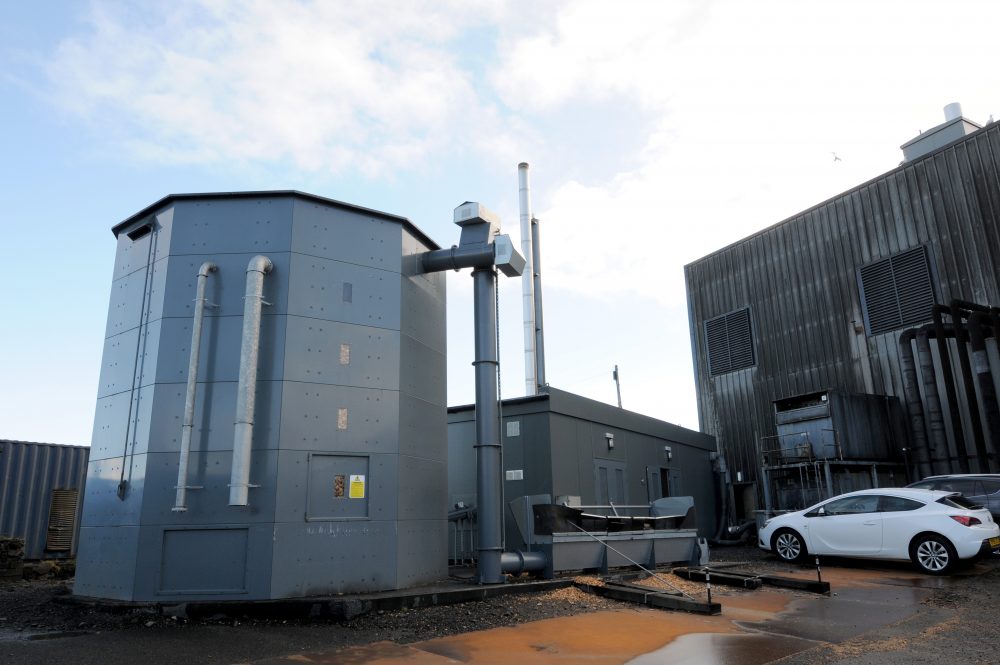
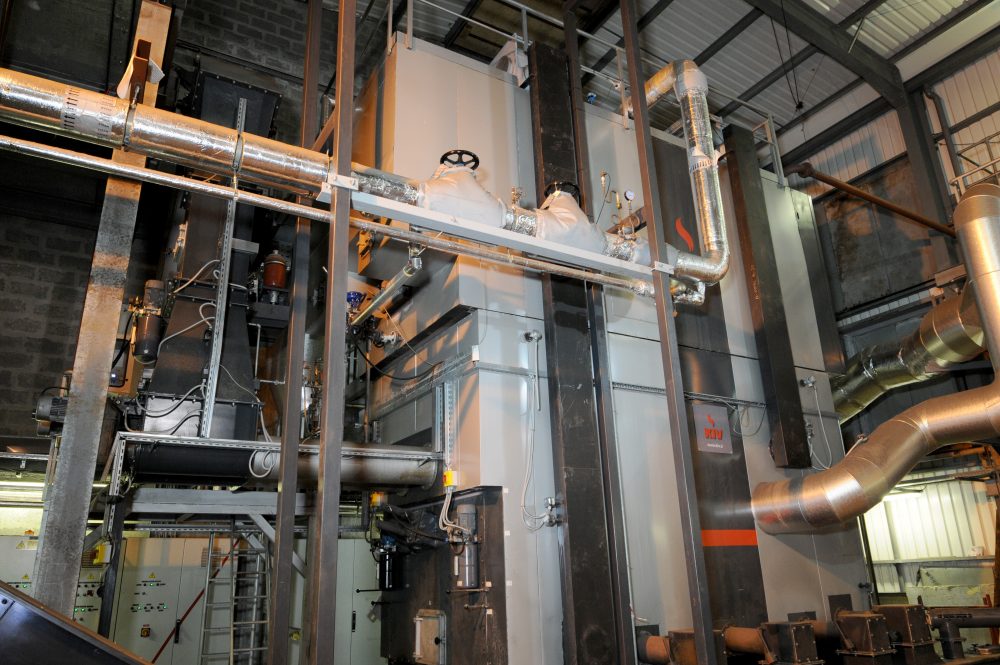
Whole-town approach: Forward Coupar Angus
Forward Coupar Angus is a community-led development trust founded in 2010 to improve the economic, environmental and social sustainability of the town Coupar Angus and its immediate surrounding area. With 230 members and 4 part-time staff, their vision is to make Coupar Angus a lively and modern community that all residents, especially families and children, enjoy being part of. Key goals are to help our community to create opportunities for a better social and working environment, while at the same time aiming to fight climate change by promoting low carbon living.
Activities include a cycling hub which is open 5 days a week, the Make A Difference squad of local volunteer fixers, a quarterly community magazine, a long-established Reuse Shop, The Function Room, Butterybank community woodland and an extensive programme of carbon literacy training.
The organisation generates funding from a whole range of grant-giving organisations and collaborates with other national and local organisations to deliver projects.
Reduce community energy use: Burntisland
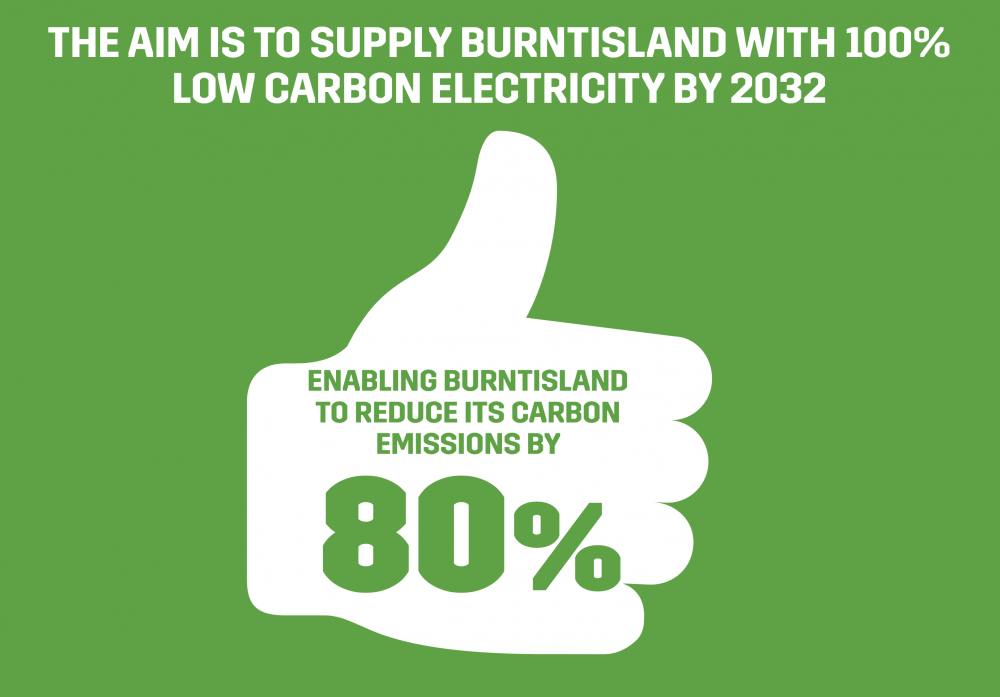
The challenge: how can Burntisland reduce its carbon footprint by 80%? Local Energy Scotland, the local authority and other partners worked with the local community to find out which low carbon heat and electricity solutions would be most appropriate to reduce fuel and mobility poverty and reduce carbon emissions, and how much they would cost.
The resulting Community Energy Masterplan is a pilot, hopefully the first of many which will cover all of Fife. Through a series of community meetings and workshops, the ‘whole energy system’ for Burntisland was mapped: heat, electricity and transport, including storage opportunities. The project brought in external expertise to enable the local community to understand their energy needs and how these could be met with low carbon, locally supplied energy, in line with Scotland’s energy and carbon targets for 2032 and 2050. It was part of an area-wide Climate Fife climate change action plan.
Find out more in the case studies section of the Local Energy Scotland website and in the full project report. Funding for the masterplan came from the Scottish Government’s Community and Renewable Energy Scheme (CARES) and the European Regional Development Fund (ERDF).
If you’re interested in developing a low energy project in your town, check out Local Energy Scotland’s online toolkit. For more information about support from Local Energy Scotland and CARES, email info@localenergy.scot or phone 0808 808 2288.
Generate community income: Neilston windfarm
To support its wide-ranging community activities and support much-needed investment in the town, Neilston Development Trust established a new community fund on the back of the development of Neilston Community Windfarm in 2013 – a 10mw joint venture of 4 turbines with an energy company. Find out more in the case studies section of the Local Energy Scotland website.
More information and examples of community energy can be found in Highlands and Islands Enterprise’s series of short videos on the topic.
Resources for net zero
Zero Waste Scotland provides comprehensive support for all kinds of organisations through funding streams, materials, training, support and a group of websites. This webpage explaining what they offer community groups is a good place to start. Their Circular Economy Accelerator webpages focus on refurbishing, remanufacturing, reusing and recycling to reduce waste and emissions, with lots of information and links to funding and resources.
Energy Efficiency Business Support from Business Energy Scotland provides free and impartial support and access to funding to help businesses save energy, money and carbon. Organisations can receive a free energy audit, plus an unsecured, interest-free loan is available to help your business make energy efficiency upgrades.’
Local Energy Scotland manage CARES, the Scottish Government's Community and Renewable Energy Scheme. They give communities, businesses and other organisations advice and funding in all aspects of local, renewable energy, including toolkits & technical resources
and case studies.
Adaptation Scotland supports climate challenge resilience by helping people, organisations and places adapt to climate change. Their How to Adapt website pages include links to a whole range of other organisations, toolkits and resources.
The Energy Saving Trust offers advice and loans for communities, as well as businesses and individuals. This includes access to funding for anything from district heating to e-bikes.
District Heating Scotland is run by a collaboration of public organisations and contains a huge range of information resources, as well as links to news, case studies and advice on how to procure district heating systems.
Green Champions Training by Business Energy Scotland is a free CPD Certified online training course for Scottish organisations. The course has been designed to give you new skills and tools so that you can successfully improve the resource efficiency and environmental performance of your organisation - and, of course, save money too.